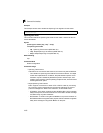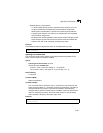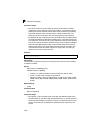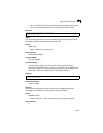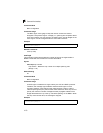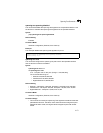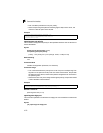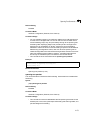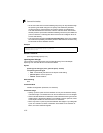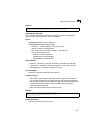
Command Line Interface
4-168
4
Command Usage
• Use this command to group VLANs into spanning tree instances. MSTP
generates a unique spanning tree for each instance. This provides multiple
pathways across the network, thereby balancing the traffic load, preventing
wide-scale disruption when a bridge node in a single instance fails, and
allowing for faster convergence of a new topology for the failed instance.
• By default all VLANs are assigned to the Internal Spanning Tree (MSTI 0) that
connects all bridges and LANs within the MST region. This switch supports up
to 34 instances. You should try to group VLANs which cover the same general
area of your network. However, remember that you must configure all bridges
within the same MSTI Region (page 4-169) with the same set of instances,
and the same instance (on each bridge) with the same set of VLANs. Also,
note that RSTP treats each MSTI region as a single node, connecting all
regions to the Common Spanning Tree.
Example
mst priority
This command configures the priority of a spanning tree instance. Use the no form
to restore the default.
Syntax
mst instance_id priority priority
no mst instance_id priority
• instance_id - Instance identifier of the spanning tree. (Range: 0-64)
• priority - Priority of the a spanning tree instance.
(Range: 0-61440 in steps of 4096; Options: 0, 4096, 8192, 12288, 16384,
20480, 24576, 28672, 32768, 36864, 40960, 45056, 49152, 53248, 57344,
61440)
Default Setting
32768
Command Mode
MST Configuration
Command Usage
• MST priority is used in selecting the root bridge and alternate bridge of the
specified instance. The device with the highest priority (i.e., lowest numerical
value) becomes the MSTI root device. However, if all devices have the same
priority, the device with the lowest MAC address will then become the root
device.
Console(config-mstp)#mst 1 vlan 2-5
Console(config-mstp)#





